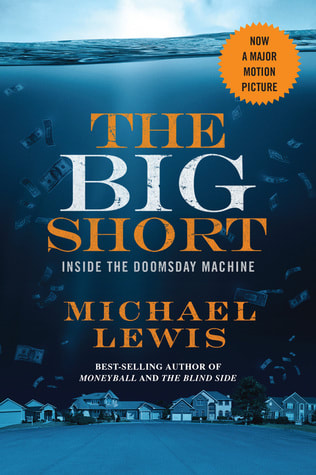|
I've been keeping up with my macroeconomic literacy (which if you know me, is a struggle) by listening to many audiobooks with the Libby app.Libby is an app that, with your library card information, will help you access free audiobooks. Living in NY certainly has its perks in this regard: The New York Public Library has an extensive collection of free audiobooks available for checkout within Libby! My 2019 reading goal, which I track through Goodreads is to read 24 books from cover to cover. This is a challenging task for me because my usual habit is to read an economics book half way, get super interested by an idea, and go pick up a different book on that. In turn, this leads to a shelf full of half read books. What has been my favorite so far? I wanted to read this on account of how much I enjoyed the movie. Great read! Highly recommended.
Add me on Goodreads!
1 Comment
I have to travel to Albany today as Farmingdale State College's "Faculty Senator". It's a big honor and a very enjoyable aspect of my job. My "Game Theory for Business" students (ECO 372) will be "attending law school" for the day, as I will not be there to challenge them. By "attending law school", I mean that they will be watching a lecture from the University of Chicago School of Law on the problem we have been studying for the past 2 weeks: supply chain holdup. The video is embedded below, but can also be accessed at this link. Many interesting examples come up in the video. We have been studying a particular example of an upstream firm holding up a downstream firm (e.g. the GM -vs- Fisher debacle of the 1920s). What I like about this video is that it includes examples of an upstream firm, like a natural gas or oil supplier/refiner, being held up by a downstream firm, like whoever owns the pipelines to transport these resources. The contract solution presented in those industries is the take-or-pay contract: the downstream firm has the obligation to pay the upstream in accordance with the terms of the contract, independent of whether they actually take delivery of the resource. This commits the downstream firm to not hold up the upstream firm - it has to pay the agreed to amount whether or not it takes delivery. To let my students indulge in exploring this aspect of business, I developed the homework problem below, which is a part of my "OER" development of this course. In 2017 I was elected Editor for the New York State Economics Association. (NYSEA)
Why? I did this because it represented a tremendous opportunity, and being elected also felt like an honor, despite the fact that I believe I ran uncontested. It's hard to say no to things as a junior faculty member. The nature of junior faculty life is also such that you get ample time to scheme, and this can lead you down all sorts of rabbit holes. The previous Editor, Bill O'Dea @ Oneonta, provided big shoes to fill. That said, there were numerous opportunities to improve the visibility of the journal. So far, I have done the following:
The Fall 2019 issue of the New York Economic Review is available by clicking here! A few colleagues and I have interests in pedagogy research, and started to explore open educational resources. To dip our toes in the water, we wrote a brief survey about students perception of open educational resources as it pertains to their educational experience. You can find a copy of the survey in the box below. In the spirit of open access, the survey data from Qualtrics (with all identifiers removed) is available in the file below. I may write further about this project here on the blog in the future.
|
This blog is a therapeutic outlet for me to write about life on the tenure track in economics.
Archives
December 2019
Categories
All
|
||||||

 RSS Feed
RSS Feed